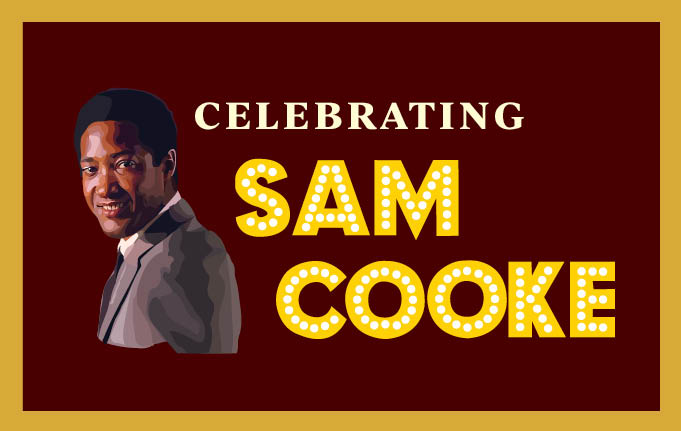In just a 60-minute production, directors Max Mclean and Jeffrey Fiske captured the very heart and soul of C.S Lewis’ most classic work, The Screwtape Letters. C.S. Lewis’s book is widely considered to be one of the most prominent religious allegories in modern literature. The book offers a satirical yet deeply profound defense of the Christian faith, all conveyed through the unique and engaging format of fictional letters. These letters form the backbone of the narrative, chronicling an ongoing correspondence between Screwtape, a seasoned and cunning senior demon, and his inexperienced nephew Wormwood, a junior tempter tasked with corrupting a human soul, The Patient, an unnamed mortal man, leading him astray from his path toward God, or “The Enemy.” Screwtape emphasizes exploiting human weaknesses such as pride, complacency, fear and sex. He discourages dramatic sins like murder, advocating instead for small, repetitive habits that gradually pull the Patient away from God. The novel examines the fragility of human faith and the complexities of morality, even highlighting how evil works in hidden ways often lulling people into a sense of contentment with mediocrity and distraction.
I was skeptical of how well and how accurate the production would be, after all, the book is told in letters, thus likely difficult to portray well on a stage. As the curtains rolled away to expose a beautiful, yet simple set, my mind drifted to all of the possibilities. After scanning the playbill, I realized that there are only two characters seen, one of who is not even present in the book. I slumped back into my seat, dreading the production, my former excitement dissipating, blissfully unaware of the magic that was about to occur.
This production was nothing short of magic. It may seem like an exaggeration to say this, but what I was wholly expecting to be a flop, turned out to be a deeply expressive, philosophical play. Brent Harris (Screwtape) and Anna Reichert (Toadpipe) had excellent command of the stage and the audience, together, a formidable team, held my attention for 60 minutes. Harris portrayed the character of Screwtape with nearly infallible accuracy, his long monologues representing the correspondence between the two demons essentially verbatim from the book itself. I appreciated this homage to the original source, and it was even pointed out that the production utilized 24 out of the 31 letters from the book, an incredible feat in itself.
Despite there being only two characters present on the stage, the rest unseen, yet referenced continuously, the production was captivating. This is beyond me and requires a special sort of genius to have the audience on the edge of their seats during a long, seemingly drawn-out monologue. Although the character of Toadpipe was created in order to engage the crowd, a deviation from the book, it was a very welcome modification. Through the exceptional use of light and sound to punctuate long monologues as well as brief, humorous interjections by Toadpipe, often to express a point or highlight an aspect of the philosophy or religion, the production remained enthralling. Harris’ skillful acting, not a misplaced emphasis, and every word spoken with understated gravitas, coupled with Toadpipe’s comedic relief made the stage adaptation of The Screwtape Letters a remarkable one
On this blog, members of the Carmel High School chapter of the Quill and Scroll International Honorary Society for High School Journalists (and the occasional guest writer) produce curations of all facets of popular culture, from TV shows to music to novels to technology. We hope our readers always leave with something new to muse over. Click here to read more from MUSE.






























![Keep the New Gloves: Fighter Safety Is Non-Negotiable [opinion]](https://hilite.org/wp-content/uploads/2024/12/ufcglovescolumncover-1200x471.png)














































![Review: Who should have really won season 33 of "Dancing with the Stars"? [MUSE]](https://hilite.org/wp-content/uploads/2024/12/Dancing-with-the-Stars-Photo-1200x657.png)
![Review: "Wicked" is a worthy adaptation of a legendary musical [MUSE]](https://hilite.org/wp-content/uploads/2024/12/Screenshot-2024-12-23-at-6.00.53 PM-1200x793.png)
![Review: “Wind and Truth” is the perfect ending [MUSE]](https://hilite.org/wp-content/uploads/2025/01/wind-and-truth.jpg)
![Review: Survivor’s 47th season cements itself as one of the greatest seasons of reality television [MUSE]](https://hilite.org/wp-content/uploads/2025/01/Survivor_47_logo.webp)
![Video Review: Carmel Bazbeaux [MUSE]](https://hilite.org/wp-content/uploads/2024/12/Screen-Shot-2024-12-24-at-2.12.20-PM-1200x681.png)
![Review in Print: Maripaz Villar brings a delightfully unique style to the world of WEBTOON [MUSE]](https://hilite.org/wp-content/uploads/2023/12/maripazcover-1200x960.jpg)
![Review: “The Sword of Kaigen” is a masterpiece [MUSE]](https://hilite.org/wp-content/uploads/2023/11/Screenshot-2023-11-26-201051.png)
![Review: Gateron Oil Kings, great linear switches, okay price [MUSE]](https://hilite.org/wp-content/uploads/2023/11/Screenshot-2023-11-26-200553.png)
![Review: “A Haunting in Venice” is a significant improvement from other Agatha Christie adaptations [MUSE]](https://hilite.org/wp-content/uploads/2023/11/e7ee2938a6d422669771bce6d8088521.jpg)
![Review: A Thanksgiving story from elementary school, still just as interesting [MUSE]](https://hilite.org/wp-content/uploads/2023/11/Screenshot-2023-11-26-195514-987x1200.png)
![Review: "When I Fly Towards You", cute, uplifting youth drama [MUSE]](https://hilite.org/wp-content/uploads/2023/09/When-I-Fly-Towards-You-Chinese-drama.png)
![Postcards from Muse: Hawaii Travel Diary [MUSE]](https://hilite.org/wp-content/uploads/2023/09/My-project-1-1200x1200.jpg)
![Review: "Ladybug & Cat Noir: The Movie," departure from original show [MUSE]](https://hilite.org/wp-content/uploads/2023/09/Ladybug__Cat_Noir_-_The_Movie_poster.jpg)
![Review in Print: "Hidden Love" is the cute, uplifting drama everyone needs [MUSE]](https://hilite.org/wp-content/uploads/2023/09/hiddenlovecover-e1693597208225-1030x1200.png)
![Review in Print: "Heartstopper" is the heartwarming queer romance we all need [MUSE]](https://hilite.org/wp-content/uploads/2023/08/museheartstoppercover-1200x654.png)




![Review: A devilishly brilliant stage adaption of "The Screwtape Letters" [MUSE]](https://hilite.org/wp-content/uploads/2024/11/rivajain.png)